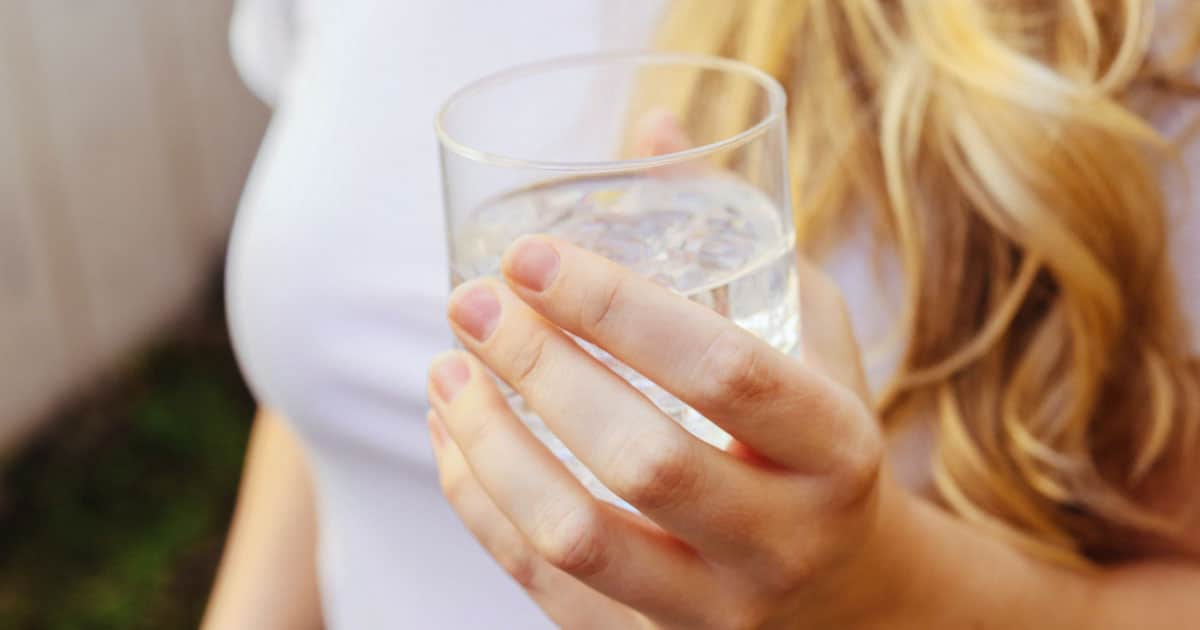Yes. Without debate, yes canned water is a safe, clean sustainable alternative to plastic bottled water. Canned water is sweeping the nation, and we should all be grateful. The issues of single-use plastic are well known; recycling rates are poor, they destroy our water systems and oceans, they pollute our landfills and they leach microplastics in our drinking water.

Plastic bottles take thousands of years to decompose, first shredding into tiny microplastics first. The only realistically recyclable and truly sustainable solution is canned water. Aluminum, the material used in canned water, is economically sustainable- meaning that there is economic value in the recycled material. Plastic, by comparison, offers very little economic value to recyclers. The economic model is broken, fueled by a tremendous oversupply of recycled plastic and cheap virgin plastic prices- most often plastic is not recycled.
Manufacturers of plastic bottled water have found it more affordable to make new plastic bottles from virgin plastics than from recycled plastics. The plastic quality is also greater when made from virgin materials. Aluminum, used in canned water, is made from almost exclusively recycled materials. Aluminum does not lose any of its material quality when recycled and can be recycled infinitely without loss. Over 70% of the aluminum ever mined is still unused today. Your canned water may end up as another can, or as part of your next computer, or even in the body panels of the car you drive to work.
Canned water bottles are offered as a direct replacement to traditional single-use PET bottles. The canned water bottles often offer many of the same conveniences we are familiar with, a resealable top, a convenient shape and portability, quick cooling, and no impact on the taste of the water. Many of these luxuries are what lead us into the plastic crisis initially. Plastic bottled water has entrenched itself as a mainstay in our life, in the US we consume nearly 50 gallons of bottled water per person per year.
Assuming 16oz plastic bottles, we drink 400 plastic bottles of water per year- per person. With recycling rates in the United States for PET around 9%, only 36 of these plastic bottles will ever be recycled. If instead we each chose to buy canned water bottles, up to 400 of those bottles would be recycled assuming they were put into a recycling stream.
Where can you buy canned water: Canned water remains a minority by sales compared to their plastic bottled equivalent. Canned water at times can be difficult to find. There are some canned water brands offering canned water online conveniently shipped to your home.
RAIN, a canned water company offers both 24pk and 12pk options of canned water. RAIN, bottles only natural spring water in all-aluminum, canned bottles, completely eliminating the need for plastic water bottles. RAIN sources its spring water in a true rainforest, one of two in the United States deep within the Appalachian Mountains. They process the spring water gently before bottling it in canned water bottles. There are also many retailers where you can buy canned water, you can find canned water in the water aisle near the plastic bottled water.
RAIN and other canned water options are sold in many states including Arizona, California, Connecticut, Florida, Georgia, Idaho, Kansas, Missouri, Montana, New Mexico, New York, New Jersey, North Carolina, Rhode Island, and Vermont.
When comparing canned water brands and canned water companies you should consider a few points; source, can and cap materials, secondary packaging. Spring Water sources have been found to offer naturally occurring minerals and electrolytes. These minerals aid in recovery, hydration and often improve the taste of the water. Springwater sources, especially those in regions with heavy rainfall like Georgia are exceedingly sustainable. When canned water companies use spring water rather than municipal water sources they eliminate the need for excessive filtration and water loss by filtration.
Springwater is filtered naturally underground for hundreds or thousands of years. The spring water can go directly into the bottle with very mild filtration. Next, ensure that both the bottle and the cap are made of aluminum. The cap should screw directly only the canned bottle, without any additional plastic threads. A bottle made from both aluminum and plastic will not be recycled as often. This bi-composition will be discarded as landfill waste when sorted at recycling centers.
Finally, if you are buying cases or multipacks of canned water, ensure that they are not wrapped in plastic. The plastic films often used to package multiple bottles are very difficult to recycle and have some of the lowest recycling rates of all plastic materials below 3%. When buying canned water online ensure that the shipping materials are also plastic-free, without the use of bubble wrap, air pillows, plastic tape, or any other plastic packaging.
Try to find canned water companies that use only paper packaging, like that used in RAIN eCommerce packaging. These all-paper and cardboard packaging options will be recycled more often and with much higher recovery rates and ultimately turned into new boxes much like canned bottles they hold- being recycled into a new can.
If you are still debating the question, “Is canned water better than plastic?”, the “canned” answer is yes. Sustainably can be difficult at times, it can impact our lives and may not offer the conveniences that we are accustomed to. Canned water however is just as convenient, just as portable, prices the same but with tremendous upside. You can take your canned water on an airplane, in the car, on a bike ride, or on a walk.
By choosing canned water you are protecting this planet for our generation and generations to come. Protecting the oceans, the rivers, and marine life. You are keeping thousands of plastic bottles out of landfills and preventing more and more microplastics from developing and polluting the planet. It’s a convenient and easy decision to make.
